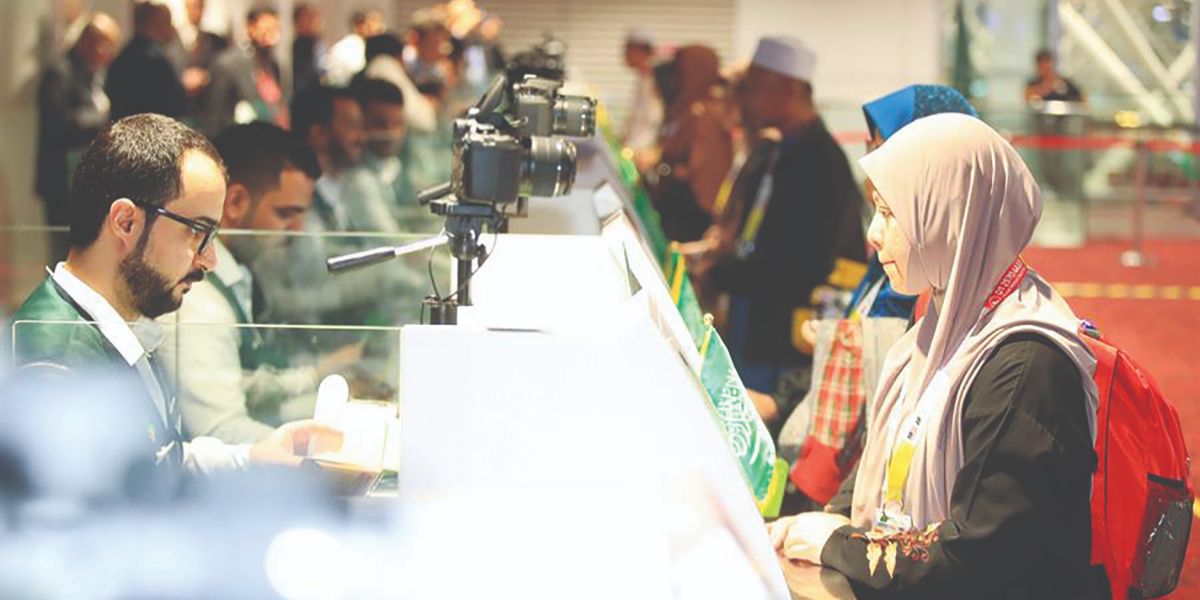The Saudi Arabian government, in its initiative “Road to Makkah”, is facilitating thousands of Muslims who visit the kingdom for Hajj and Umrah.
Earlier this month, the Saudi Arabian authorities have decided to include Karachi and Lahore to the project destinations. The decision was made during a daylong visit of Saudi Arabia’s Interior Minister Prince Abdulaziz bin Saud bin Naif to Islamabad.
Pakistan was included in the project in 2019, after Saudi Crown Prince Mohammad bin Salman concluded his visit to the country in February 2019.
On July 5, 2019, Prime Minister Imran Khan had officially launched the “Road to Makkah” project at the Islamabad International Airport. Under this initiative, the first flight took off from Islamabad on July 6, 2019. Under the project, around 22,000 Pakistani pilgrims were expected to avail the pre-departure immigration clearance at the Islamabad Airport.
A make-shift hospital and two field units were set up in Madinah as part of the Pakistan Hajj Medical Mission, wherein 19 doctors and 34 paramedical staff were deputed to provide timely medical facilities to the pilgrims during Haj in 2019.
In 2019, 54,453 pilgrims from Pakistan, Malaysia, Bangladesh and Indonesia arrived in the kingdom under the “Road to Makkah Initiative”.
Meanwhile, the inclusion of Lahore and Karachi will facilitate the pilgrims in direct landing at the Makkah Airport, while their luggage will directly be transported to their hotel destinations.
The pilgrims will not undergo customs clearance at the Saudi airports once these cities are included in the project.
The initiative is part of the Saudi government’s National Transition Programmes (2020). It aims at fulfilling the Vision 2030 objective of having well-developed public services and infrastructure throughout the kingdom.
Launched in 2017 by the Ministry of Interior in collaboration with the ministries of Foreign Affairs, Health, Haj, Umrah, Customs and Civil Aviation, and the National Information Centre, the initiative is expanding every year.
Now the pilgrims from the member countries of the project will be provided immigration, and customs clearance at their countries’ airports before their departure to the kingdom for Hajj.
The initiative includes issuing visas, ensuring compliance with health requirements and codifying and sorting luggage at airports in pilgrims’ own countries. This enables the pilgrims to bypass these procedures upon arrival in the kingdom and to head directly to buses waiting to transport them to their accommodations in Makkah and Madinah.
The initiative eases pilgrims’ journey by granting e-Hajj visas and finalising pilgrims’ entry procedures before they arrive in the kingdom.
Malaysia was the first country to implement the initiative in 2017; followed by Indonesia in 2018. It was expanded to Tunisia, Bangladesh, and Pakistan in 2019.
Under the initiative, the travel arrangements of the Malaysian pilgrims were to be “confirmed electronically”, including health requirements where pilgrims could skip the paper documents on vaccines at the airport in their own country.
Fingerprints and passports are to be taken and stamped ‘electronically’ in their home country before departure.

















